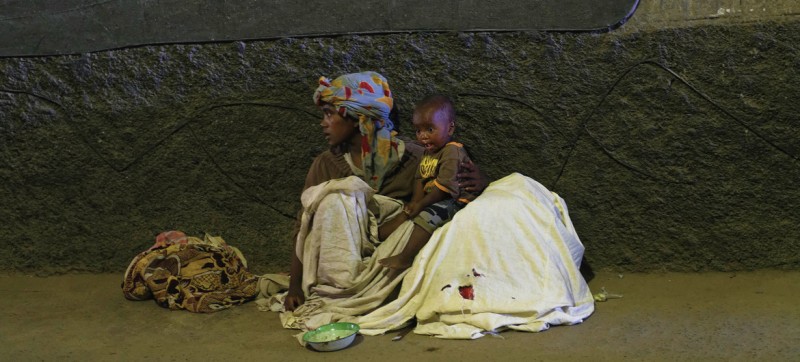The majority of people in Madagascar live in extreme poverty. Although poverty and privilege “continue to reproduce themselves in vicious cycles”, it is possible to break the chain and shift the paradigm, an independent UN human rights expert told the General Assembly on Wednesday. Presenting his report, The persistence of poverty: how real equality can break the vicious cycle, Special Rapporteur on extreme poverty and human rights, Olivier De Shutter, said that “with political will”, it is possible to end centuries of entrenched inequality and “move from fate to opportunity”. Early investment
“Investing in early childhood, promoting inclusive education, given young adults a basic income financed through inheritance taxes, and combating anti-poor discrimination are the key ingredients needed to break the cycles of advantage and disadvantage”, Mr. De Shutter said in his statement.
Acknowledging that many countries pride themselves on ensuring high levels of social mobility, the human rights expert stated that “the truth is that the persistence of privilege at the top, and deprivation at the bottom, are all too commonplace.”
“The top 10 percent of people living in OECD countries control 52 percent of total net wealth, while the bottom 60 percent own just over 12 percent, condemning the poor to a lifetime of poverty”, he said. According to the report, based on data from countries which are part of the Organization for Economic Cooperation and Development (OECD), it takes four to five generations for children in low-income households to reach the mean income in their country. In emerging countries such as Brazil, Colombia or South Africa, it can take up to nine or even more generations.
Tougher with time
Observing that children born in disadvantaged families were denied equal opportunity, the Special Rapporteur examined the channels through which poverty is perpetuated, in the areas of health, housing, education and employment.
“Children born in poor families have less access to healthcare, decent housing, quality education and employment than those in better-off households”, De Shutter said. “This dramatically reduces their chances of breaking free from the poverty trap”.
Describing the outcomes as “appalling”, the Rapporteur added that children born in a family experiencing poverty are more than three times as likely to be poor, aged 30, than those who were never poor.
Poverty costs
The UN rights expert reminded that child poverty is not only “morally unconscionable and a human rights violation”, but also expensive. “In the United States, child poverty costs over one trillion dollars annually, or 5.4% of its GDP, but for each dollar invested on reducing it, seven dollars would be saved,” said the expert.
Calling for and end to the myth that inequality is an incentive that encourages people to work harder, Mr. De Shutter said that the facts point to the exact opposite: “Inequality lowers social mobility and entrenches advantage and disadvantage over decades. When we fetishize merit, we stigmatize those in poverty or with low incomes, and blame them for their own condition”.

A child carries water bottles in the underprivileged community where she lives in northern Bulgaria.
Call for action
Stressing that “no child should be penalized for being born in poverty” in mind, and stating that, in fact, “poverty is a failure not of the individual, but of society”, Mr. De Shutter called on governments to act now, “before another generation is condemned to the same fate as their parents”.
Mr. De Shutter was appointed as the UN Special Rapporteur on extreme poverty and human rights by the UN Human Rights Council on 1 May 2020.
He and all Special Rapporteurs are tasked with examining and reporting back on a specific human rights theme, or a country situation.
The positions are honorary, and the experts are neither UN staff, nor paid for their work.




Comments are closed.